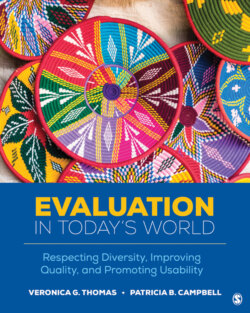Читать книгу Evaluation in Today’s World - Veronica G. Thomas - Страница 135
На сайте Литреса книга снята с продажи.
Reid E. Jackson
ОглавлениеReid E. Jackson has been identified as “the first bright light of the African American evaluation community” (Hopson & Hood, 2005, p. 90). In 1938, Jackson received his PhD in education from The Ohio State University, being the fourth African American to achieve this status. He held various positions over his career including, for example, secretary of the Southern Negro Conference for Equalization of Educational Opportunities (1944–1946), administrative dean at Wilberforce University (1949), and professor at several Historically Black Colleges and Universities (HBCUs) including Talladega, Alabama State, West Virginia State, Central State, and Morgan State. Hood (2001) identified Jackson as one of the earlier pioneers in educational evaluation, and later, Hopson and Hood (2005) described the significance of Jackson’s work as providing “one of the earliest glimpses of culturally responsive evaluative judgments” (p. 96).
Courtesy of Kentucky State University Special Collections and Archives.
Jackson’s evaluations of segregated schooling for African Americans in Kentucky (R. Jackson, 1935), Florida (R. Jackson, 1936), and particularly Alabama (R. Jackson, 1938, 1940a, 1940b) provide concrete examples of an evaluator designing and implementing evaluations where race and culture are central considerations. Between 1935 and 1940, he published 14 scholarly articles focusing on evaluation of secondary schools for African Americans and teacher training programs, both of which he argued should serve as vehicles to further democracy. One of Jackson’s conclusions from the evaluation of segregated schooling for African Americans in Kentucky was that the “curricula of the public high school do not adequately meet the demands for a proper vocational preparation of the student” (R. Jackson, 1935, p. 191). Similarly, Jackson (1940b, p. 207) concluded from his evaluation of Alabama segregated schools that “the challenge to secondary education for the Negro in Alabama includes not only preparation for existing vocations but also the development for latent possibilities of the Negro as a contributing factor in a democratic society.” From these selected examples, it is clear that Jackson’s work provided significant insights to educational evaluations aimed toward social justice ends.
